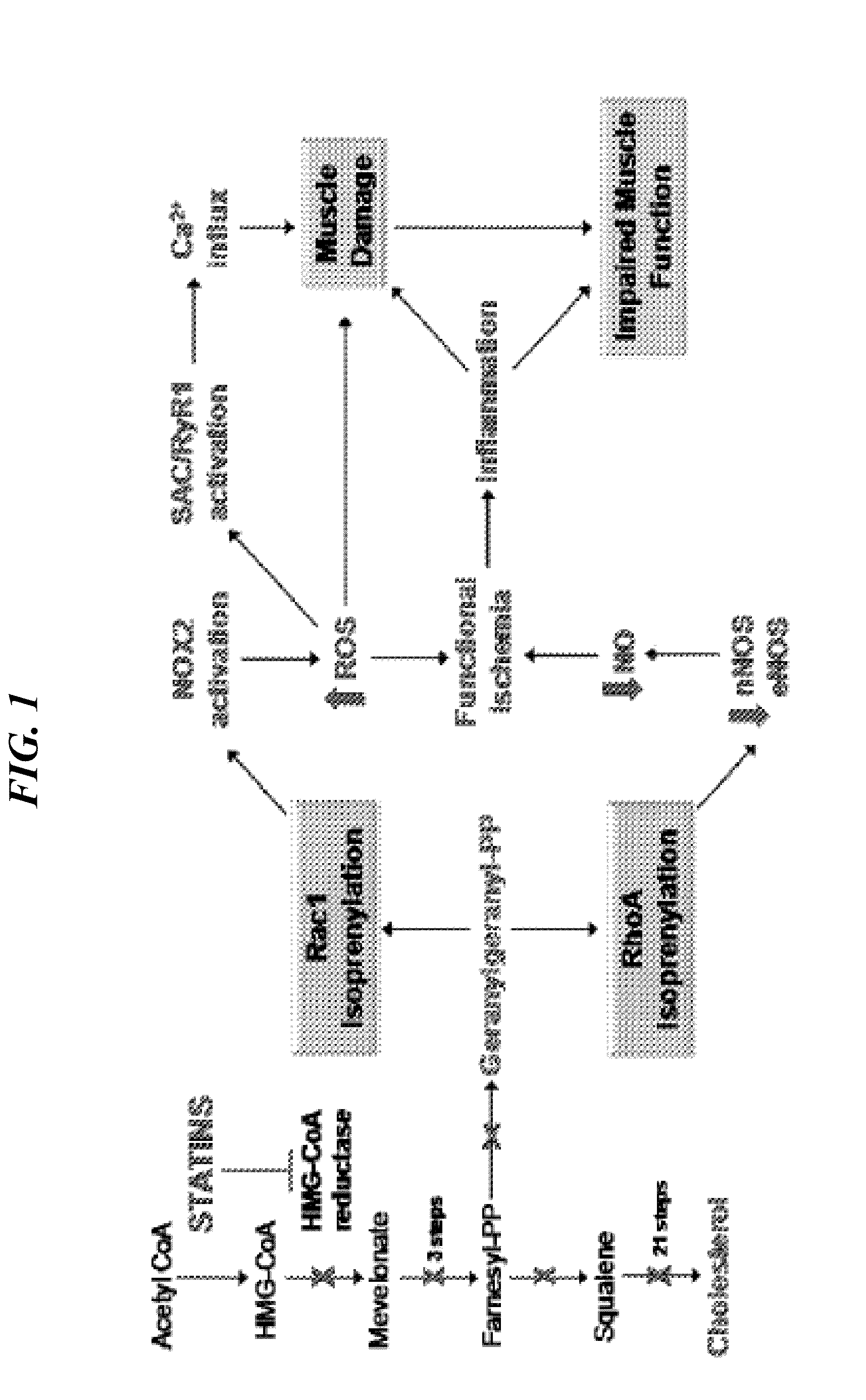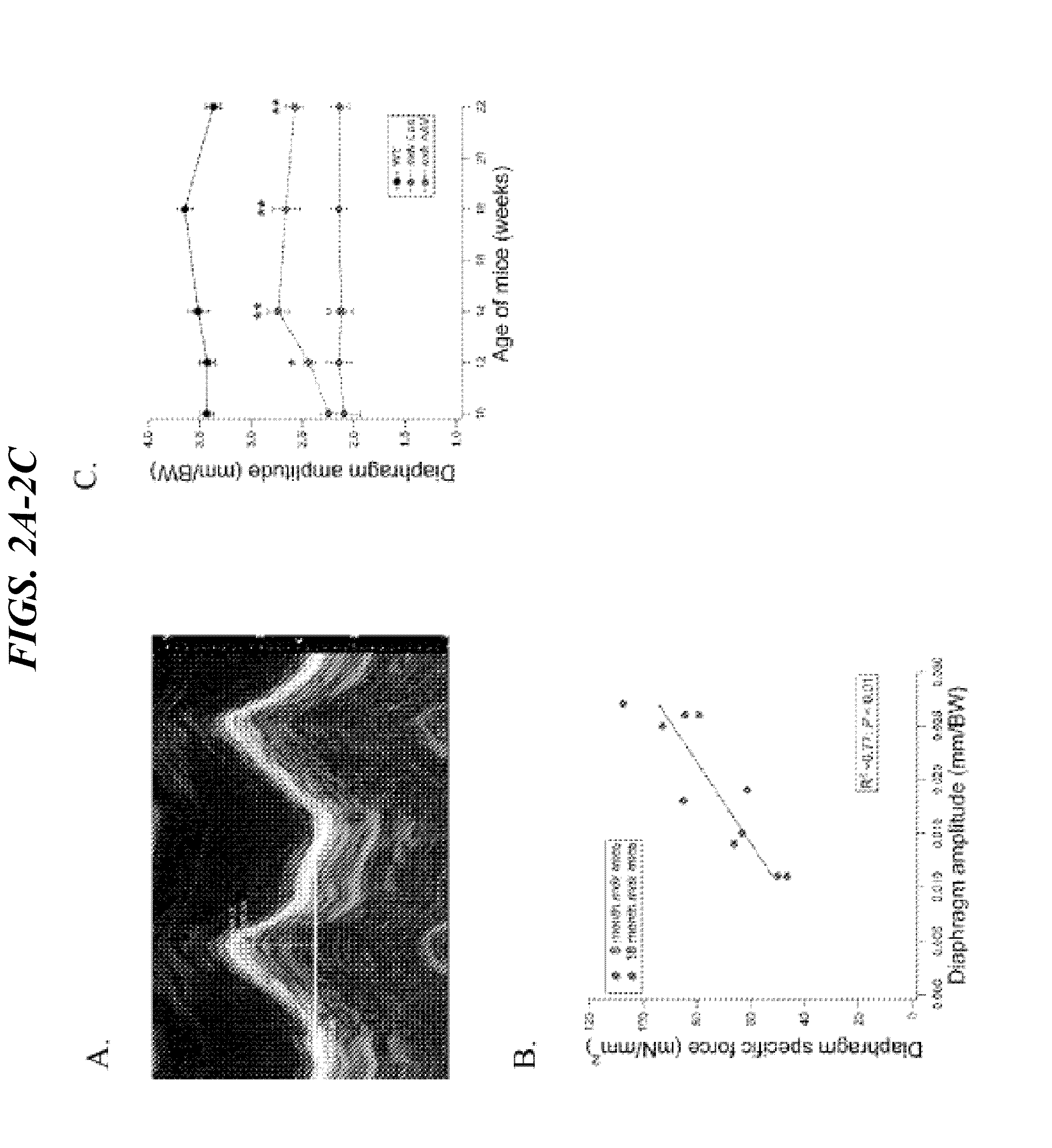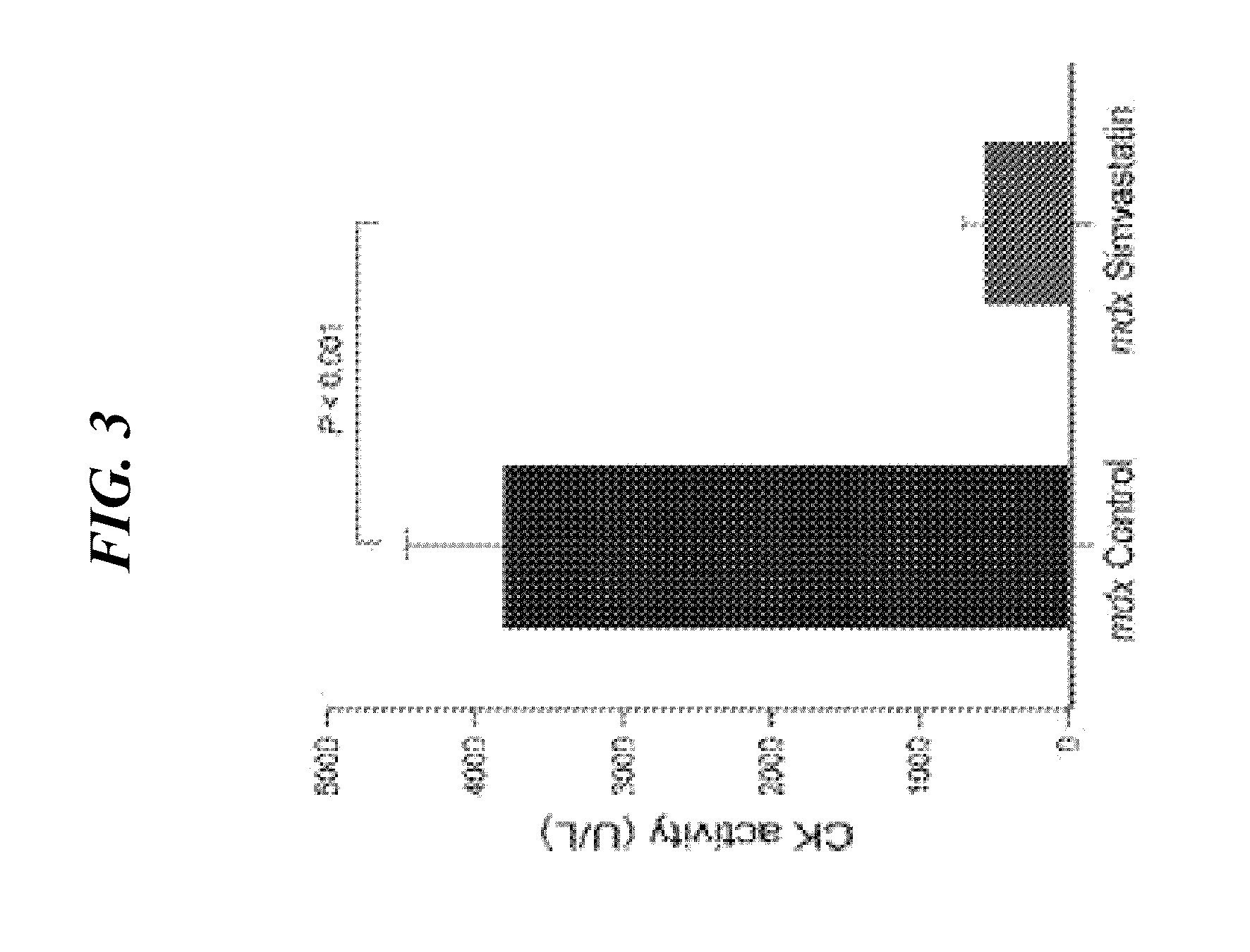Statins in the treatment of muscular dystrophies and myopathies
a statin and muscular dystrophia technology, applied in the field of statins for the treatment of muscular dystrophies and myopathies, can solve the problems that the use of these drugs for primary skeletal and cardiac myopathies has not been explored
- Summary
- Abstract
- Description
- Claims
- Application Information
AI Technical Summary
Benefits of technology
Problems solved by technology
Method used
Image
Examples
example 1
Statins are Therapeutic for Muscular Dystrophy in the mdx Model of DMD
[0154]As described herein, mdx mice were treated with Simvastatin, a commonly prescribed and extensively researched statin that lowers LDL cholesterol and improves cardiovascular system health (1, 6, 11, 23). While the benefits of statins on atherosclerosis-related outcomes are well established, it is less well known that these drugs also significantly improve skeletal muscle health in experimental and clinical limb ischemia (3, 8, 10, 17). This is important because DMD has been characterized as a functional ischemic disease, with impaired muscle perfusion associated with muscle contractions in both mdx mice and DMD boys (5, 26). Consistent with these observations, the data described herein show dramatic reductions in whole-body muscle damage and significant improvements in diaphragm and cardiac muscle function after long-term Simvastatin treatment of mdx mice. Therefore, the data provided herein demonstrate that ...
example 2
Both Cardiac and Skeletal Muscle Benefit from Statin Treatment in the mdx Model of DMD
[0163]Duchenne muscular dystrophy (DMD) is a common, fatal, degenerative muscle disease that affects 1:3500 males worldwide. Currently there is no effective treatment for DMD. Skeletal and cardiac muscle degeneration in DMD is characterized by chronic inflammation, oxidative stress and fibrosis. Statins, the most widely used cholesterol lowering drugs, effectively inhibit these pathogenic processes in cardiovascular tissues, largely via cholesterol-independent, ‘pleiotropic’ mechanisms.
[0164]Statins have never been considered as a possible treatment for DMD or other muscular dystrophies principally because of the perceived risk of skeletal muscle damage, a known side effect of statins. Herein, we show unexpectedly that Simvastatin dramatically enhanced the physiological function of both skeletal and cardiac muscle of dystrophic mdx mice, an animal model of DMD. Long-term Simvastatin treatment vastl...
example 3
[0174]Duchenne muscular dystrophy (DMD) is a lethal, degenerative muscle disease with no effective treatment. DMD muscle pathogenesis is characterized by chronic inflammation, oxidative stress and fibrosis. Statins, cholesterol-lowering drugs, inhibit these deleterious processes in ischemic diseases affecting skeletal muscle, and therefore have potential to improve DMD. However, statins have not been considered for DMD, or other muscular dystrophies, principally because skeletal muscle-related symptoms are rare but widely publicized side effects of these drugs. Herein, we show positive effects of statins in dystrophic skeletal muscle. Simvastatin dramatically reduced damage and enhanced muscle function in dystrophic (mdx) mice. Long-term simvastatin treatment vastly improved overall muscle health in mdx mice, reducing plasma CK activity, an established measure of muscle damage, to near normal levels. This was accompanied by reduced inflammation, more oxidative muscle fibers, and imp...
PUM
| Property | Measurement | Unit |
|---|---|---|
| Time | aaaaa | aaaaa |
| Mass | aaaaa | aaaaa |
| Mass | aaaaa | aaaaa |
Abstract
Description
Claims
Application Information
 Login to View More
Login to View More - R&D
- Intellectual Property
- Life Sciences
- Materials
- Tech Scout
- Unparalleled Data Quality
- Higher Quality Content
- 60% Fewer Hallucinations
Browse by: Latest US Patents, China's latest patents, Technical Efficacy Thesaurus, Application Domain, Technology Topic, Popular Technical Reports.
© 2025 PatSnap. All rights reserved.Legal|Privacy policy|Modern Slavery Act Transparency Statement|Sitemap|About US| Contact US: help@patsnap.com



